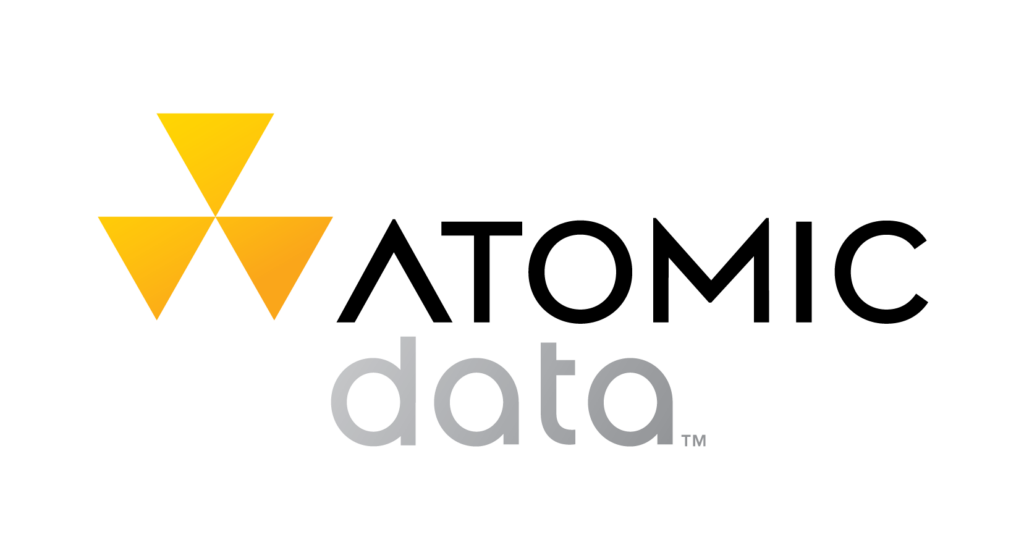Community Resources
Navigating questions about your sexual orientation or gender identity can be complex. Having a supportive community is key. For more information on therapy, medical care, and other LGBTQ+ services, explore the resources below. Knowledge is power when it comes to making informed decisions about your life.
MN TRANS HEALTH COALITION
The Minnesota Transgender Health Coalition is committed to improving health care access and the quality of health care received by trans and gender non-conforming people through education, resources, and advocacy.
(612)823-1152 | WEBSITE
ALIVENESS PROJECT
Offers HIV support services such as, healthy meals, food shelf, nutrition therapy, case management and housing resources, HIV services, and peer led support groups.
(612)824-LIFE (5433) | WEBSITE
FAMILY TREE CLINIC
A nonprofit clinic committed to improving the health of LGBTQ individuals through affordable, respectful sexual health care and education.
(651)645-0478 | WEBSITE
RED DOOR CLINIC
STD & HIV testing, support groups, and sexual health services in Twin Cities.
(612)543-5555 | WEBSITE
RAINBOW HEALTH
Rainbow Health offers in-person and telehealth options for mental health and substance use support for people who are LGBTQ+ and people living with HIV.
AIDSLine (612)373-2437
| WEBSITE
RECLAIM!
Provides counseling services and support groups for LGBT-identified youth ages 13-25 who are seeking therapeutic support related to sexual orientation and/or gender identity and expression.
(612)235-6743 | WEBSITE
CENTER FOR SEXUAL HEALTH - UMN
Counseling services on sexuality and gender identity, including gender confirmation surgery.
(612) 625-1500 | WEBSITE
MN LGBTQ+ THERAPISTS NETWORK
Network of lesbian, gay, bisexual, transgender, queer, questioning, intersex, pansexual, two-spirit, and asexual affirming mental health and social service workers and their allies in Minnesota.
YAP
The Youth and AIDS Projects— housed in the University of Minnesota’s Department of Pediatrics—offers HIV testing, HIV/AIDS medical case management, HIV prevention services, and sexual health education programs for young people living in the Minneapolis/St. Paul metro area.
(612)301-6675 | WEBSITE
QUEER BIRTH PROJECT
The Queer Birth Project is a collection of LGBTQ-identified birth and postpartum professionals based in and around Minneapolis, Minnesota who work together to support LGBTQ families during family building and early parenting. Services include, Childbirth Education, New/Prospective Parent Group, Non-gestational Parent Group, Trying to Conceive Group, Consulting and Trainings.
ANNEX TEEN CLINIC
Annex Teen Clinic is a sexual health clinic serving young people through age 25 with education and clinical services. Annex provides a full range of low-cost sexual health services including clinical services, referrals, follow-up, and education. All services are confidential, and no one is turned away for the inability to pay.
(763)533.1316 | WEBSITE
MYHEALTH FOR TEENS & YOUNG ADULTS
myHealth provides low-cost medical care, reproductive health care, counseling, and educational services for young people ages 12-26. Services include pregnancy testing, birth control, Emergency Contraception (ECP), STI testing and treatment, general and sports physicals, vaccines, minor illness checks and treatment, asthma care, dental care, pregnancy and parenting home visiting program, health education, and parent education. We never turn anyone away, even if they cannot pay.
(952)474-3251 | WEBSITE
TRANSFORMING FAMILIES
A peer support group aimed towards trans and gender nonconforming youth and their families in Minnesota.
(612) 321-8416 | WEBSITE
PRIME TIMERS
Prime Timers Minneapolis/St. Paul is a diverse social organization for the enrichment of gay and bisexual men at all stages of their lives. We provide opportunities to socialize and build relationships that go beyond Prime Timers Minneapolis/St. Paul.
TIGERRS
TIGERRS is a nonhierarchical collective dedicated to delivering programs and resources that build solidarity and safety among transgender, intersex and gender-expansive Minnesotans. Offers Intergenerational events, Intersex services, and youth events and services.
QUATREFOIL LIBRARY
Quatrefoil Library is a member-supported, 501 non-profit library and community center for the lesbian, gay, bisexual, and transgender community. It is located in Minneapolis, Minnesota.
(612) 729-2543 | WEBSITE
QUEERSPACE COLLECTIVE
QUEERSPACE collective is a mentorship program created specifically for LGBTQ+ youth in Minnesota. They offer youth trainings, support groups, social events, workshops.
MINNESOTA ASEXUALS
Social and advocacy group for asexual Minnesotans
BOP
BOP (Bisexual Organizing Project) is committed to building the bisexual, pansexual, fluid, queer, and unlabeled (bi+) community through regular events and the yearly national BECAUSE conference. BOP is welcoming and inclusive of everyone, including but not limited to people of all gender identities, sexual orientations, sexes, relationship orientations, ethnicities, abilities, religions, and political affiliations.
MN LEATHER PRIDE
Minnesota Leather Pride (MNLP) is a Minnesota-based organization dedicated to celebrating, honoring, and nurturing leather/kink/BDSM culture and history by facilitating communication and building alliances among individuals and groups within communities; offering opportunities for education, social interaction, visibility, activism, and community service.
STONEWALL SPORTS MN
Stonewall Sports Twin Cities is a LGBTQ+ community-based sports league. Organized competition, social events, and fundraisers to help serve those in need.
Team Trans Twin Cities
Team Trans is an an international collective of all Trans and Non-Binary hockey players. We have over 500 players globally. Team Trans Twin Cities is it’s first state chapter and has over 100 players with 50 of them actively skating year round.
TCQHA
Twin Cities Queer Hockey Association (TCQHA) is an inclusive space for all LGBTQIA people! TCQHA formed in the Twin Cities as the current hockey space did not exist for Queer folks. We realized that it’s time for EVERYONE to have a SAFE and Inclusive space to skate.
GRAY DUCKS
The Gray Ducks are queer owned and operated, and this sub group creates a safe space for players to come together. We serve more than 225 LGBTQIA+ community members with year round soccer typically at the level they desire, on the day and format they desire too.
Minnesota Freedom Band
The Minnesota Freedom Band is Minnesota’s only LGBTQ+ community band. Our purpose is to elevate and amplify the instrumental voices of LGBTQ+ musicians. The band offers an inclusive community for musicians of any ability level, with performance opportunities in concert band, big band jazz, marching, and pep band.
Twin Cities Gay Men's Chorus
Twin Cities Gay Men’s Chorus (TCGMC) is a volunteer community chorus whose mission is Gay Men Building Community Through Music. Twin Cities Gay Men’s Chorus seeks to provide its members with rewarding musical experiences and to promote social exchange. As an organization that celebrates diversity and uses music as a way to transform, educate and heal, the Chorus works towards the elimination of homophobia and intolerance through community outreach.
One Voice Mixed Chorus
One Voice Mixed Chorus is Minnesota’s only largest—lesbian, gay, bisexual, transgender, and straight allies (LGBTA) chorus. One Voice has been “building community and creating social change by raising our voices in song” for 30 years. With 125 singing members ranging in age from 15 to 81, and 50 non-singing “Fifth Section” volunteers, One Voice inspires passionate, vibrant, and creative performances for thousands of audience members each year at concerts and during outreach tours.
MNPoly
MNPoly believes that love is love. We are a nonprofit organization who provides education, support, advocacy, and social connections for people who are curious about, new to, or currently in the Ethical and Consensual Non-Monogamous Communities of Minnesota. MNPoly fosters people making decisions about who they love and what kind of relationships they want, without fear or judgment. Considering a significant amount of our members are LGBTQ, we would also like to further our LGBTQ community outreach.
Minneapolis Mayhem Rugby Club
Our club strives to promote participation in rugby by traditionally underrepresented groups, including gay men. We provide an inclusive environment in which members of diverse communities can learn the laws and practice of rugby and have the opportunity to compete at local, regional, national and international venues. Mayhem Rugby is a member of International Gay Rugby. We primarily play rugby with other members of IGR and local non-IGR teams.
Calliope Women's Chorus
Calliope is the second-oldest feminist chorus in the United States. For more than 45 years, we have been helping women’s voices be heard and amplifying messages of social justice while providing a welcoming environment for LGBTQ women and allies to make music together. We are the oldest group in the Twin Cities’ Queer Music Consortium, and we perform regularly in the Twin Cities area.
WEBSITE
MINNESOTA INDIAN WOMEN RESOURCE CENTER
Offers Two Spirit and Native LGBTQ+ programs and weekly support groups in the Metro area.
(612)728-2000 | WEBSITE
AVENUES FOR YOUTH
Supports youth ages 16-24 in Hennepin County. Avenues support youth to find their path out of homelessness. They do that by providing a stable home, building trusting relationships, and navigating the youth’s education, career, health and wellness and housing goals.
(612)522-1690 | WEBSITE
BRIDGE FOR YOUTH
Crisis intervention and shelter for runaway youth, including LGBTQ sensitive services.
24-hour crisis line: (612)377-8800
Business line: (612)230-6601
OUTFRONT MN
OutFront Minnesota is an LGBTQ+ rights organization in the state of Minnesota. The organization is community-based and offers anti-violence services, educational trainings, advocacy resources, and community resources.
Anti-Violence Program: (800)800-0350
(612)728-2000 | WEBSITE
If you are in a crisis, please contact the following:
Domestic/Intimate Partner Violence (more shelter) — Day One | 1.866.223.1111
Sexual Violence Center | 612.871.5111
Trans Lifeline | 877.565.8860
LGBTQ+ Youth — The Trevor Project | 1.866.488.7386
General Support/Mental Health Support — NAMI | 800.950.6264
GSA NETWORK
The GSA Network consists of student-led chapters at middle schools and high schools throughout the United States. Chapter members work to promote social change and increase acceptance of youth of all orientations and identities. The GSA Network also has virtual chapters to ensure LGBTQ+ students can stay connected even when they’re not in school.
PFUND FOUNDATION
PFund builds community and provides resources for LGBTQ+ individuals across the upper Midwest and the First Nations therein.
FACE TO FACE
Face to Face serves young people experiencing homelessness or at risk of becoming homeless in Ramsey County. Provides comprehensive medical care, mental healthcare, housing support, case management, employment training and support, and other social services to low-income and insecurely housed youth ages 11 to 24.
NAMI
Dedicated to improving the lives of children and adults with mental illnesses and their families. LGBTQ+ support groups and counseling
(612) 823-1152 |WEBSITE
PFLAG
Support groups for parents and friends of LGBTQ+ individuals in the Twin Cities.
(612)825.1660 | WEBSITE
GENDER JUSTICE
We work to create a world where everyone can thrive no matter their gender, gender identity or expression, or sexual orientation. Central to this work is dismantling the legal, political, and structural barriers to gender equity.
GRAY DUCKS
The Gray Ducks are queer owned and operated, and this sub group creates a safe space for players to come together. We serve more than 225 LGBTQIA+ community members with year round soccer typically at the level they desire, on the day and format they desire too.
PRIDE INSTITUTE
Pride Institute has been a leader in helping LGBTQ+ individuals recover from substance use disorder, sexual health issues and mental health conditions. Offer residential and outpatient programs in Minnesota.
952.934.7554
LATITUDES
Latitudes is a LGBTQ facility designed to meet the specific substance abuse and mental health needs of the LGBTQ community. They offer a safe space for LGBTQ+ MI/CD residential programs.
612 454 2016
OUT & SOBER MN
Out & Sober Minnesota exists to bridge the gap between crucial stages of development for LGBTQ+ people in recovery.
They offer monthly programming that help build (or rebuild) and reinforce important social networks for queer, sober people.
QUEER IN RECOVERY NA
Wednesdays at 8:30pm at Seward Cafe in Minneapolis.
TRANS AND QUEER AA MEETINGS
Tuesdays at 8:15pm at All God’s Children Metro Community Center.
RECOVERING HOPE TREATMENT CENTER
industry-leading substance use disorder treatment, mental health therapy, medication management, peer recovery services, and more.
(844) 314-HOPE
Don’t see a resource listed that you think we should add? Email [email protected] to let us know!



